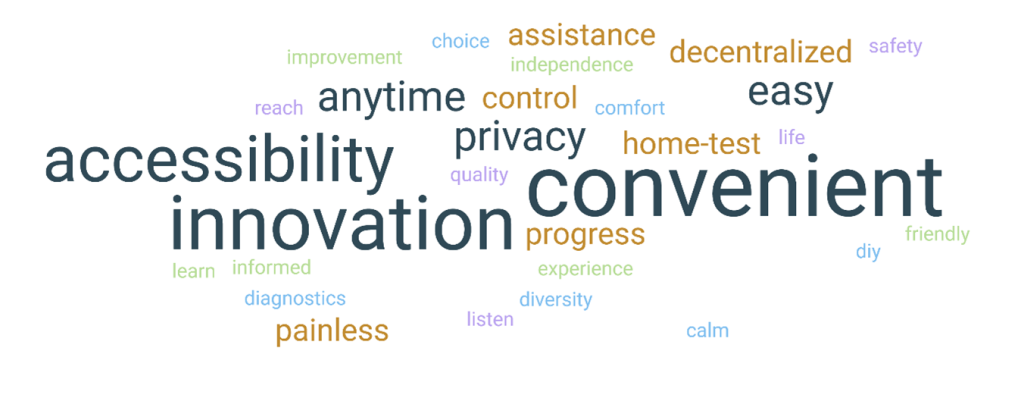What is Patient Centric Sampling?

What is Patient Centric Sampling?
Patient centric sampling (PCS) is an approach for obtaining high quality biological samples (e.g. blood, plasma, urine, etc.) from humans at any time and in any location, for the determination of circulating concentrations of molecules of interest or the examination of cell types and quantities. These concentrations are routinely used to assist in the diagnosis and treatment of disease and for several other applications, including development of new drugs, drug testing in sport, determination of nutritional status, etc.
What are the benefits?
The aim of the PCS approach is to minimize the impact on the person from which the sample is being collected and, in many cases, increase access by an individual to their own health status information. In some cases, it may be possible for the person to collect the sample themselves, or with the help of a care giver. Technologies used for PCS may enable the sample to be collected in a setting that is more convenient for the person, such as their home, or a local pharmacy. For blood, the approach differs from traditional venous blood sampling in that samples are obtained from regions of the body such as the finger, the upper arm, or lower back, rendering the blood collection less painful. For urine and feces sample collection, a PCS approach may involve the use of a less messy method.
What samples can be collected this way?
Any human biological sample that is collected with the needs and comfort of the patient at the forefront is considered PCS. This includes blood, plasma, serum, urine, feces, saliva, etc. Other examples of PCS include the replacement of blood sampling with less invasive approaches, such as saliva.
Who can benefit from PCS?
All people can benefit from PCS, by being able to take control of their own biological sample collection and also to perform it in a manner that is more convenient and less disruptive to them. In addition, there are cases where particular groups might gain further benefits from the use of PCS approaches, these include (but are not limited to):
- People living in remote areas.
- Children.
- Elderly.
- Those whose medical condition makes sample collection difficult.
- Those with a phobia of needles and / or are unable to tolerate the traditional sampling approach.
- Those who find it inconvenient or have economic barriers to attend a clinical setting for sampling.
- Underrepresented patient populations.
PCSIG Flyer
We have developed a single page flyer that summarises what PCS is, what the benefits are and who the PCSIG are. It also has QR codes with links to the PCSIG LinkedIn group and website.
Please feel free to share this flyer with your colleagues, contacts, customers, etc, and take it to conferences and other events to help spread the word about patient centric sampling.
Download the Flyer